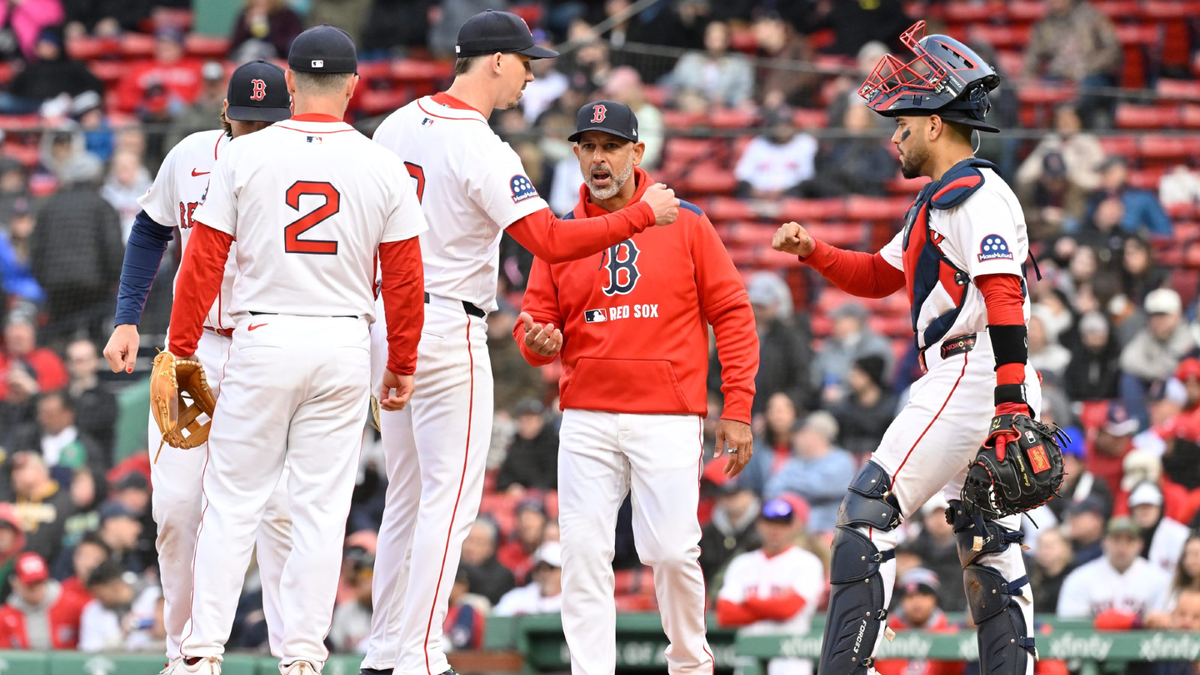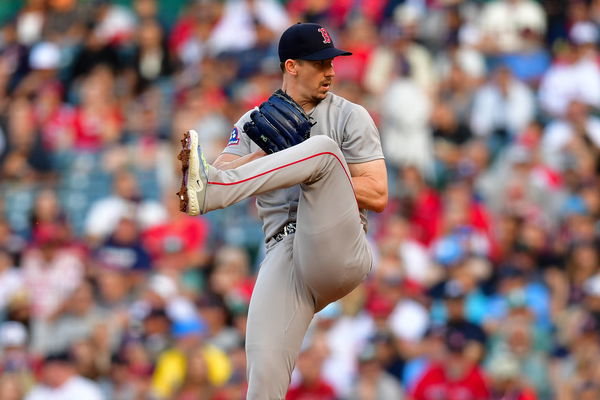
Imago
Credits: Imago

Imago
Credits: Imago
The $9.1M Ex-Red Sox star, once identified as a powerful ace, is now remembered in the Red Sox for an underwhelming stint. And now he has ignited debate with his statement on MLB’s Automated Ball-Strike system. The pitcher is now with the Phillies, where he has made headlines by suggesting that veteran pitchers “deserve” more of the plate than younger stars. This is a remark that quickly drew sharp criticism across MLB.
Watch What’s Trending Now!
Walker Buehler’s tenure with the Red Sox only enhances the sting of his statement. The star’s time with Alex Cora’s team ended with a demotion and release, and it left Buehler to rebuild in the Phillies via a Triple-A assignment. While testing the ABS system in the minors, the star voiced his disapproval, calling it “inaccurate”. He claimed that it does not properly capture the strike zone. Such a critique itself was not unusual — some pitchers have noted glitches; however, what came after that turned Buehler’s statement from debate to backlash.
“Pitchers who have thrown for a long time deserve certain parts of home plate that others don’t,” Walker Buehler said. That spread quickly, where fans and analysts alike rejected the thought process. Baseball YouTuber Fuzzy highlighted the reaction in a viral post: “Walker Buehler said he doesn’t like the ABS system because ‘pitchers that have pitched for a long time deserve certain parts of the plate that other guys don’t get.’ So Taijuan Walker being in the league longer than Paul Skenes means he should get a bigger zone? Crazy take 😂”
The thought that the strike zone needs to bend based on seniority has raised deeper concerns. Should the game focus on fairness and uniformity or honor unwritten rules that grant veterans extra leeway? The Phillies star’s statement shines a light on that philosophical divide. For decades, umpires have subconsciously widened the zone for elite or long-tenured pitchers, but the ABS threatens to erase that unspoken advantage.
The backlash highlights just how divided MLB is on the future of officiating. To critics, Walker Buehler’s thought process highlights an outdated sense of entitlement. To fans, it is a reminder that human aspects are part of the game’s DNA. Either way, he has unintentionally become the latest face of MLB’s ongoing tug-of-war between value and technology.
Walker Buehler said he doesn’t like the ABS system because “pitchers that have pitched for a long time deserve certain parts of the plate that other guys don’t get”
So Taijuan Walker being in the league longer than Paul Skenes, means he should get a bigger zone?
Crazy take😂
— Fuzzy (@fuzzyfromyt) September 12, 2025
This debate did not stop with Buehler’s statement— it carried straight into the fans, where social media reactions painted a clear picture of how divisive his stance really is.
Fans Rip into Buehler’s “Veteran Advantage” take
One fan goes straight to the center of the matter, calling Buehler’s opinion “idiotic” and the very purpose of the ABS system: to ensure consistency. “ABS a ball is a ball and a strike is a strike. No more umpires slanted toward the pitcher or the hitter. No more pitch framing. Just an honest call for everybody,” they wrote. That sentiment echoes MLB’s push for transparency, as league data from test runs in Triple-A showed pitch-calling accuracy improved around 10% with ABS.
Another fan emphasised the irony of Walker Buehler’s position, recalling an earlier ejection: “Even though Buehler got thrown out for arguing balls and strikes earlier this year. Walker puzzles me.” That night, May 19, became shameful for the Red Sox when both Buehler and manager Alex Cora were tossed after clashing with umpire Mike Estabrook over missed calls. For critics, it is hard to accommodate a pitcher who raged against umpire judgment, then defended the very subjectivity ABS aims to eliminate.
Some, however, pointed out that while Buehler’s take is incorrect, it is not totally out of nowhere. One commenter compared his stance to baseball legends of the past: “It’s wrong but not crazy, given what we’ve seen. There have been guys—e.g. Maddux and Glavine—who could live on that 18th inch and get the call 80–90% of the time. Hitters with a long reputation for a good eye, like Wade Boggs, seemed to ‘earn’ a 16-inch plate.” Historical strike-zone creep has been part of the game, but critics argue that it was precisely what ABS was developed to fix.
Others mocked Buehler with sarcasm, taking his logic to the extreme. “With this logic, Clayton Kershaw should have the Pacific Ocean as his own strike zone,” one fan joked. The hyperbole resonated, with fans highlighting how unfair the game would become if longevity alone widened the strike zone. After all, MLB Statcast data from 2023 already showed a 6% discrepancy in borderline strike calls depending on pitcher reputation, an imbalance ABS is meant to correct.
Ultimately, the bluntest reaction captured the mood of many: “Dumb take. A ball is a ball, a strike is a strike. We have the tech, use it.” For a growing portion of fans, the debate is over. ABS represents a modern solution to an age-old issue, and for them, there is no turning back. They see Buehler’s stance not as safeguarding tradition but adhering to an outdated advantage in a league that is moving toward fairness and precision.

Imago
MLB, Baseball Herren, USA Boston Red Sox at Los Angeles Angels Jun 23, 2025 Anaheim, California, USA Boston Red Sox pitcher Walker Buehler 0 throws against the Los Angeles Angels during the first inning at Angel Stadium. Anaheim Angel Stadium California USA, EDITORIAL USE ONLY PUBLICATIONxINxGERxSUIxAUTxONLY Copyright: xGaryxA.xVasquezx 20250623_gav_sv5_034
The backlash to Buehler’s comments showcased just how polarizing the ABS debate has become. While some nod to tradition, most fans, backed by test data showing improved accuracy, see robot umpires as a step toward fairness. For Buehler, what he views as respect for veterans, many see as bias. The question remains: should baseball’s future lean on earned reputation or on technology’s promise of consistency?






